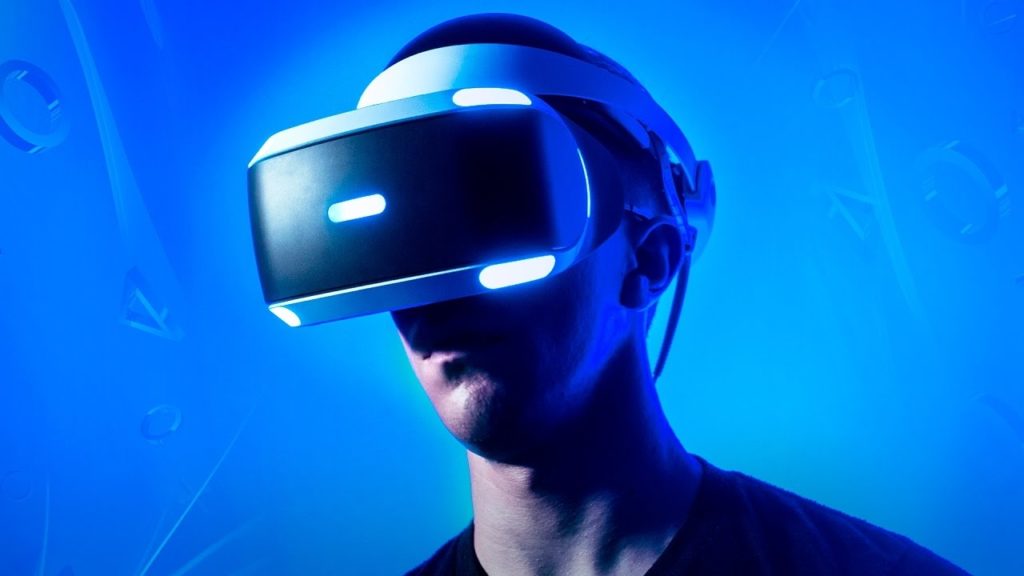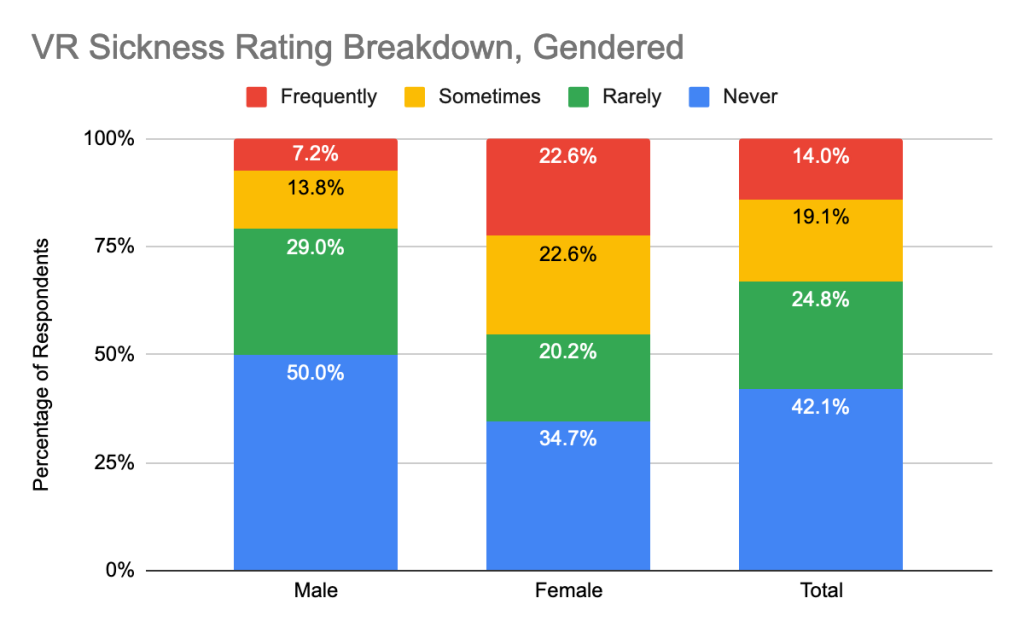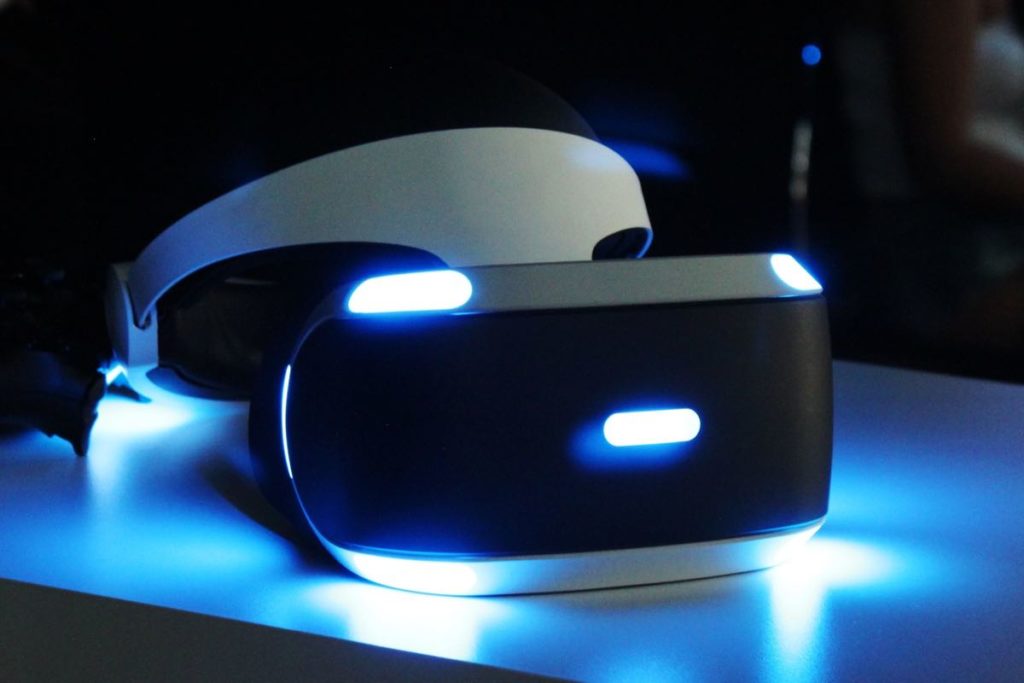The authors of the VR Heaven blog interviewed Reddit users about whether VR helmets cause “seasickness”. It turned out that this problem depends on the gender of the player.

Programmer Aaron Santiago and marketer Winston Nguyen published the results of a survey conducted by 292 people on their blog.
The respondents were asked the following questions:
1) Your gender?
2) How often do you get seasick when using a VR headset? (You could answer “often”, “sometimes”, “rarely” and “never”.)
3) Were you able to adapt to the VR headset in the end?
- 22.6% of women reported that they are often seasick in a VR helmet. Among men, only 7.2 experience such problems%;
- 22.6% of women get motion sickness “sometimes”, as well as 13.8% of men;
- the answers “never” and “rarely” were more often given by men;
- two-thirds of the players who used to get seasick in VR helmets were able to overcome this symptom and adapt to the headset;
- but there are much fewer women among them.

Thus, the authors of the survey found a correlation between the gender of the VR player and the problems of the vestibular apparatus. Note that modern medicine claims that women are more susceptible to “seasickness” also in everyday life (for example, in transport).
Why is this happening?
The authors identified three possible reasons why women are uncomfortable in VR helmets.
Firstly, it may be the distance between the pupils of the eyes (this metric is called IPD). Men often have it more than women. According to Santiago, the helmets are made with male IPD in mind. Therefore, for women, the use of a helmet can be uncomfortable, as when wearing glasses for vision with unsuitable lenses.
Secondly, the player’s experience in two-dimensional and three-dimensional games is important. According to the analytical company Statista, men are more likely to play first-person shooters and action games. Such titles are as similar as possible to games in the VR environment, and it is easier for fans of these genres to adapt to the headset. At the same time, women are more likely than men to play puzzles, farms and other two-dimensional games.

Thirdly, men are more likely to decide to buy a VR headset. According to Santiago and Ngayen, women perceive VR as a hobby for “serious gamers”, but they do not treat themselves to the latter as often as male players. Therefore, women have less experience in using VR helmets, so it is more difficult for them to get used to virtual reality and overcome motion sickness.
The authors also noted that hormonal differences may also play a role.
Let’s add that the VR industry has been showing uncertain dynamics lately. On the one hand, support for several headsets has stopped at once, including Oculus Go and Samsung Gear VR. On the other hand, Half-Life: Alyx was able to attract many new players to the VR environment.
Also on the topic:
- Facebook has abandoned another VR headsetAfter the release of Half-Life: Alyx, the share of VR players on Steam has doubled
- Is there any news?
Share it with us, write to press@app2top.ru
